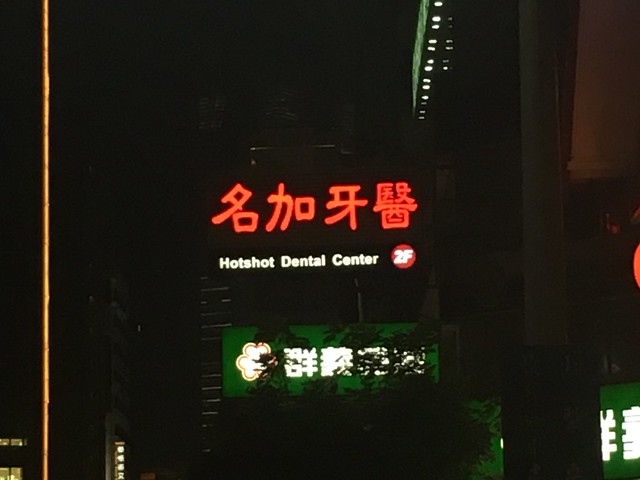Trinity CertTESOL is coming to Taiwan!
As a teacher trainer myself, I'm very excited about this. One of the biggest flaws in the industry of English-teaching workhouses and abbatoirs here is that, once here, if you don't already have a basic pre-service teaching certification, it's difficult to get one as there were no offerings in Taiwan. No Trinity CertTESOL, no CELTA: two of the only - if not the only two - internationally-recognized programs that include practicum hours. And, as a teacher trainer, the only two that I can personally wholeheartedly recommend.
In addition to tuition fees, that meant leaving the country for a month (and losing a month's worth of income, if you could get the time off at all) and paying all associated costs with living in another country for that month - possibly as well as rent back in Taiwan. I know it was a huge financial burden when we went to do CELTA in Turkey.
Now, that's no longer necessary: on November 5th, a part-time (Monday-Friday, 9:30-13:30) certification course is finally available locally! If you can be free in the mornings, you don't have to leave Taiwan or stop working.
Trinity is equivalent to CELTA, which means that it will be useful to you even if you leave Taiwan. Having not only been through CELTA but also Delta and in the middle of a Master's program in the same field, I can say that it's worth it. The curriculum is sound - and I'm a teacher trainer who has completed an equivalent course herself, I would know - and the practicum hours set it apart from weekend or online courses. You will certainly become a better teacher because of it, if you take what you learn from it and incorporate it intelligently and thoughtfully to the classroom while developing your own style.
It's also important to remember that these certifications aren't meant to create insta-teachers or classroom superheroes. Nothing can do that except experience, reflective practice and consistent, high quality professional development. They are pre-service programs, which means they are open to people who have never taught. They aren't even meant to give you all the skills a professional needs: entire multi-year teaching programs exist for that, and not even they can accomplish it. They're meant to give you the fundamentals you need to be competent in the classroom as a novice teacher, or to improve your practice as a current teacher, with the assumption that you will receive further development and institutional support from your employer (how much institutional support you are considered to need post-certification will vary). They are stepping-stones to higher-level in-service teaching degrees. They get you on the track - they're not the end of the road.
You may be wondering how such a certification can help you in Taiwan. I admit that's a real problem here: the complete lack of any sort of qualifications needed to be a "teacher" in Taiwan, and how certifications are generally not rewarded well, which feeds the cycle of mediocrity and poor teaching practice.
But, better jobs in Taiwan do exist. There are fewer of them, but they are generally only open to teachers who have these certifications, or at least, those who do get their resume pushed to the top of the pile. These jobs tend to be more professional and pay better (though I wouldn't say they are wonderful - almost no job in Taiwan is). You may be frustrated that at Happy Oxbridge Engrish Scholar's Acadamy, you won't get a raise for doing this program, and I'm sympathetic to that.
But, better places to work will actually consider you seriously if you do, and that will come with better pay and other perks, like the ability to request more time off (unpaid) or more time off in total (perhaps paid).
Oh, yeah, and you'll just be a better teacher for it.
Wednesday, October 3, 2018
Tuesday, October 2, 2018
Taichung: where transport cost more than my hotel
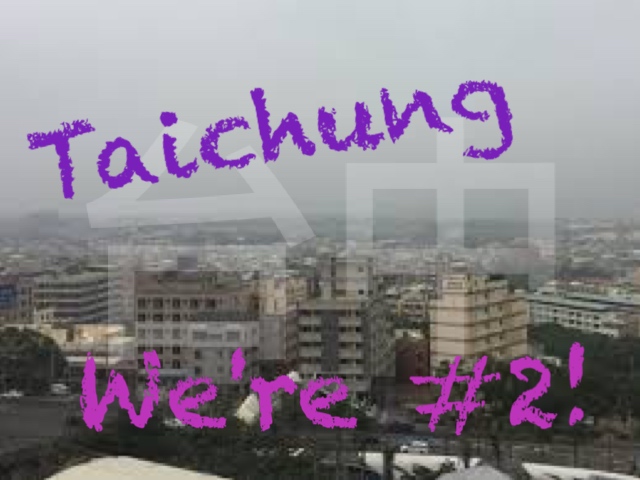 |
| Taichung is now the second-largest city in Taiwan |
Quite some time ago, I took a quick weekend jaunt to Taichung, mostly to see friends, but also to give the city a fair chance.
I'll admit, I've never been the biggest fan of Taichung, and I don't really understand why so many foreign residents say it's the best city in Taiwan to live. Sure, the weather is better, but the pollution is unbearable, making it hard to enjoy. Being in central Taiwan, it's equidistant from the attractions of both the north and south, but it's not actually in either of those places (to be fair, the area around Taichung is lovely). It's more laid-back, true, and more affordable - but there's also not a lot to do. The city has tried to improve public transport, but I'd say that has spectacularly failed. It has arguably one of the best night markets in Taiwan, but it's not easy to get to if you don't drive.
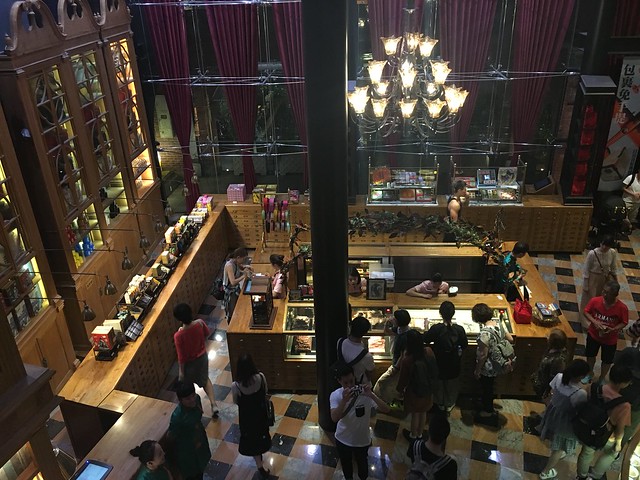 |
| Miyahara, near Taichung Train Station |
That said, I'd only stayed briefly in the past, usually on the way to somewhere else. So I felt I should at least spend a few days there before being so dismissive. It has also beaten out Kaohsiung to become the 2nd largest city in Taiwan, so it seemed like a good time to give it a chance.
The result? Mixed. Don't get me wrong, the cover photo on this is meant to be cheeky and fun, not a wholesale put-down of Taichung. I had a fun weekend - it's just that it cost me a hell of a lot of money to get around.
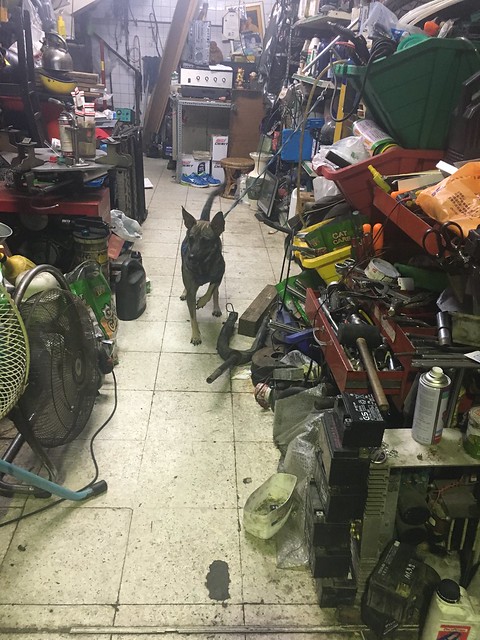 |
| From our nighttime walk through central Taichung city |
I arrived on a Friday evening and immediately went to a friend's house, where a few other friends had gathered. I drank a bit too much whiskey, ate a few too many fried chicken anuses, and let's just say I'm pretty sure my friend had to call an exorcist to banish the demons I expelled in his bathroom later on. That was probably my most authentic Taichung experience: whiskey, chicken ass, and horking up that chicken ass a few hours later because why the hell would anyone eat that much chicken ass?
The next morning, I wandered downstairs not feeling great at all, and found a local breakfast shop. This is a small pleasure of Taiwan - little shops that have all sorts of tasty, greasy fare and are open until nearly lunchtime. Most foreigners in Taiwan seem to go for dan bing (a savory pancake-like roll with egg and filling, which is often cheese or bacon), but my go-to breakfast is a hamburger and turnip cake. The food was good and cheap and the atmosphere local. Being an industrial area, most of the other customers were Southeast Asian - Taiwanese factories frequently employ labor from nearby countries. This is one facet of the real Taiwan: not a "pure Han Chinese" "island" which is "historically a part of China" with "Chinese culture" where foreigners are temporary guests used for convenience, but a multicultural nation with a unique identity and strong ties to its Southeast Asian and Austronesian neighbors, where many foreigners of various backgrounds build long-term or permanent lives.
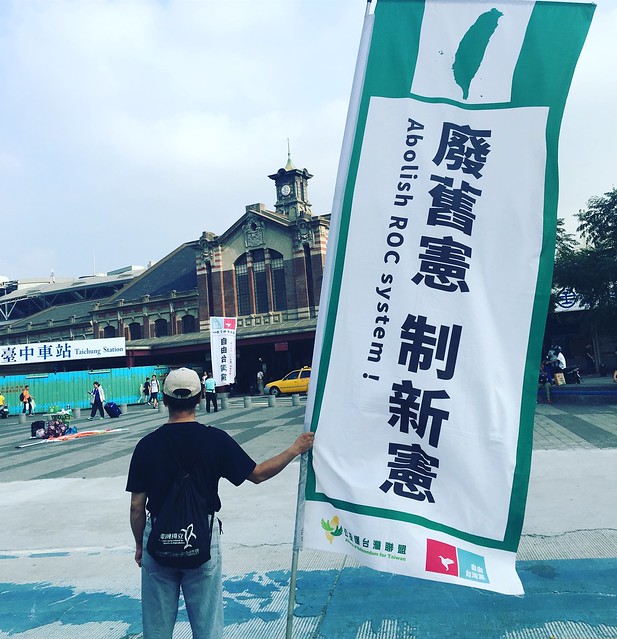 |
| I'm a big fan of these flag guys - we have them in Taipei too |
I have to say this for Taiwan: my friend lived in an industrial park. This is not what you'd imagine in the West: there is residential and commercial activity in such places in Taiwan. That said, in the US, in an "industrial" zone on the outskirts of town, I don't know if I'd have felt safe as a woman walking around alone. In my native land, such an area would probably have been a quiet, eerie place on a Saturday morning. Too deserted for a woman to feel comfortable.
In Taiwan, I knew I was perfectly safe.
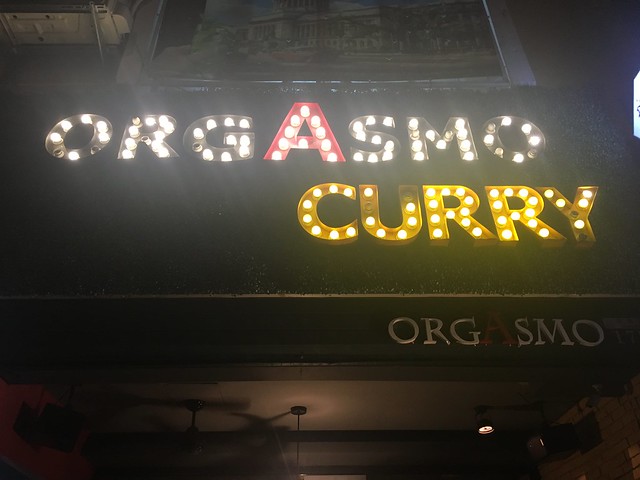 |
| There's no Curry Orgasmo in Taipei |
After saying goodbye to my friend (and reminding him that both of his bathrooms now contained horrors that needed a few power of Christ compels yous for them to be truly clean again, I mean spiritually clean, not just mopped down, and, oh, sorry about that), I came face to face with Taichung's biggest problem: just...not very good public transport at all. I'd stayed quite far from the city center, and faced a not-that-pleasant ten-minute walk to the nearest bus stop to get into town. No idea when the next bus would come - though to be fair that particular route was probably well-serviced - I took a taxi.
The cost of that taxi was about half of what I'd spent on the hotel. It's not that I didn't have the money, I just resented spending that much cash to get around. I like cities that facilitate rather than hinder transit. I can drive: I even hold an international driver's permit. I won't drive in cities, though, because I value my life and my sanity. I'm not a comfortable city driver by any means, although I'm quite happy to tool around the mountains in a rental car. For someone like me, who feels deeply uncomfortable with city driving, there is no easy way to get around Taichung.
I waited for my husband to show up - he would meet me in Taichung after his Saturday morning private class, and we'd grab a late lunch before checking out Taichung's #1 tourist attraction: Miyahara.
I - and every other tourist in Taichung - enjoyed Miyahara, a gorgeous setting to have tea, coffee or ice cream. I almost feel obligated to write that, though. I'd write more, but Miyahara is well-covered elsewhere. We enjoyed the atmosphere enough that we ended up hanging out there until it was time to go to dinner. Even the view (of the abandoned Qianyue Building) felt very Taiwanese. As Stephanie Huffman noted in Formosa Moon, Taiwan does a good job of not hiding its scars.
Later that evening, it was also pleasant to walk from downtown - most affordable hotels are near the train station - to meet another friend in a restaurant near the Calligraphy Greenway. We avoided the massive Taiwan Boulevard, which didn't run particularly close to our destination, and took quiet backstreets. Again, in Taiwan we knew this was perfectly safe. I don't know that I would have done so after dark in many American cities.
Buses along Taiwan Boulevard were an option, but not particularly convenient to where we were going. Fortunately, we didn't mind the walk. Good thing too, as there was no alternative way to get there.
We met at Curry Orgasmo. If you're wondering whether I chose it for the name...I did. Also, it has perfectly acceptable (but not orgasmic) curries, and there isn't one in Taipei. This part of town is great for nighttime walking - there are parks, shops, restaurants, places to grab a drink. It's lively, without the unending crowds of Taipei. If I were planning to return to Taichung I'd look into staying in this neighborhood instead. The area around the train station is crowded and bustling, and the hotels are cheaper (some of them don't give you condoms and lube on the nightstand, even) but there's not quite as much to do.
After curry, beer and chat, we were meant to head out to meet yet another friend for drinks and dessert at Delys&Sens - a bar and cafe that had real French desserts and well-made drinks by an expert...what are the kids calling it these days, "mixologist"? Count me in!
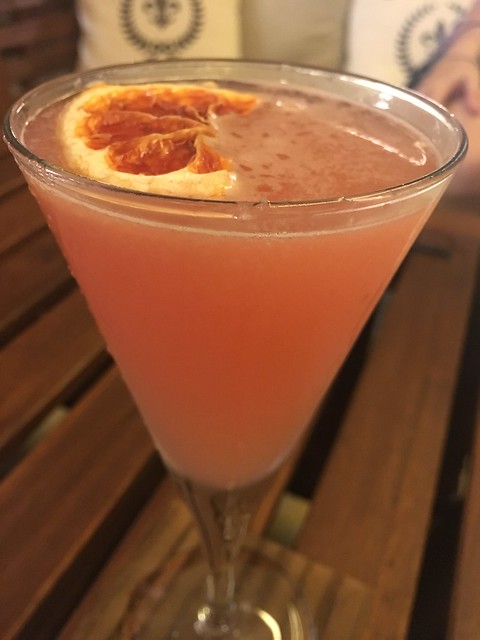 |
| A drink from Delys&Sens |
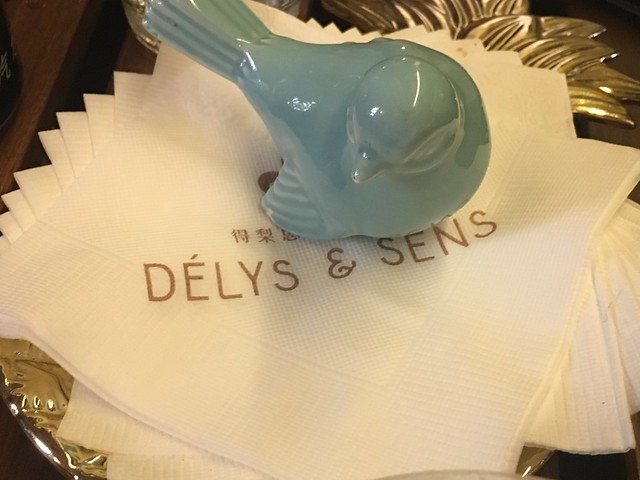 |
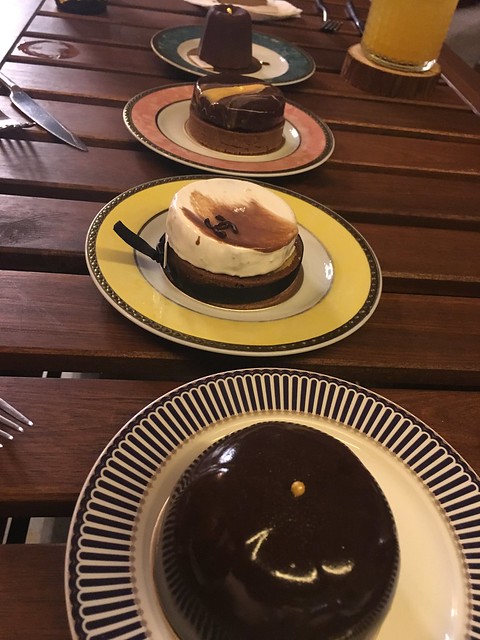 |
| Desserts at Delys&Sens |
Inviting our dinner companion along, we realized that the walk from Curry Orgasmo to Delys&Sens would be just a bit too far, so we hopped in another taxi. Despite friends insisting that Taichung does have a working bus-based public transit network, there was no clear way to get between the two without a wait and walk that was long enough to not justify trying.
Delys&Sens was absolutely fantastic - I enjoyed hearing about how the bartender refused to work with Aperol but was willing to use Campari, despite being a fan of Aperol myself (too many grad school-based summers in Europe) - and the desserts, well, I wish I could easily find desserts that good in Taipei at reasonable prices. In Taipei, I feel like I usually end up with a $200NT slice of defrosted chocolate cake purchased from the same factory that every other cafe orders from.
This was a level above. Just good Western desserts. Just good. With good drinks. Just...good. I cannot recommend it highly enough. We were also able to sit on an outdoor terrace - a rare treat coming from Taipei, where there is hardly ever outdoor seating (it's not only too crowded, the weather just doesn't cooperate most of the time). It was one of those laid-back evenings in a different city with friends that you can enjoy when you actually live in a country, rather than trying to pack in must-see tourist destinations from dawn-till-bedtime.
No chicken asses to be found, but I'd had enough of those. This was another Taiwan urban experience.
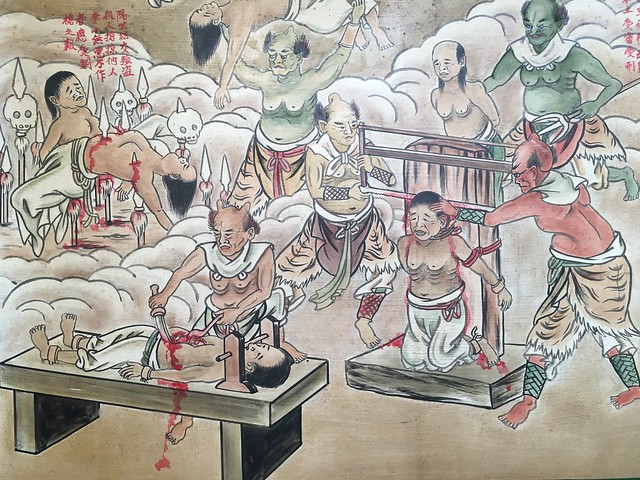 |
| Scenes of Hell at the City God Temple |
The next day, we started with coffee and a browse of the books for sale at Fleet Street. Then we set out to find some of Taichung's older points of interest - the City God Temple (城隍廟), which is to the south of Taichung train station and in the area where the Qing were building what was to be the capital of Taiwan ("Taiwan City"). Nothing remains: the temple is still there, but the rest was torn down by the Japanese. But, it's an interesting old part of the city to poke around in and get a cheap lunch.
The temple itself is also interesting, with - as City Gods aren't always the nicest or kindest dudes - lots of scenes of Hell, as in, that's where you'll go if the City God judges you at your death to deserve it.
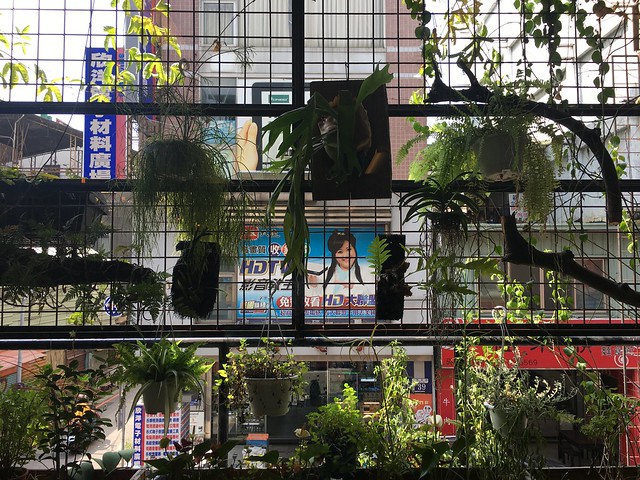 |
| Fleet Street Cafe |
Then we tried to take a look at the old Imperial Examination Hall - a wooden structure, one of the oldest and best-preserved Qing-era buildings in Taiwan - but it was closed for renovation. We tried to sneak in, but it just wasn't happening (and perhaps was not entirely safe).
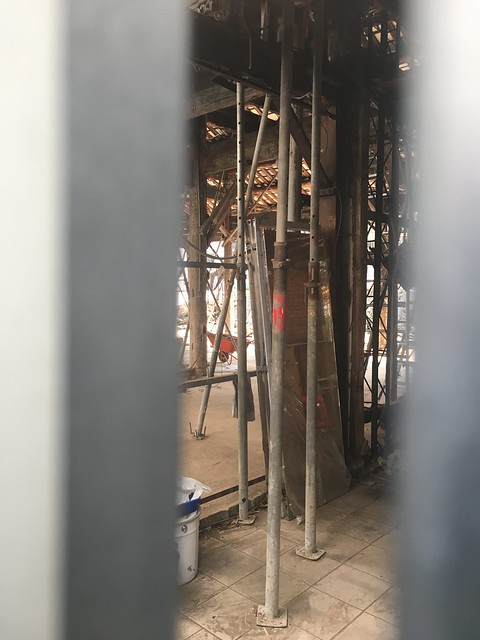 |
| A peek through the bars at the Qing Imperial Examination Hall |
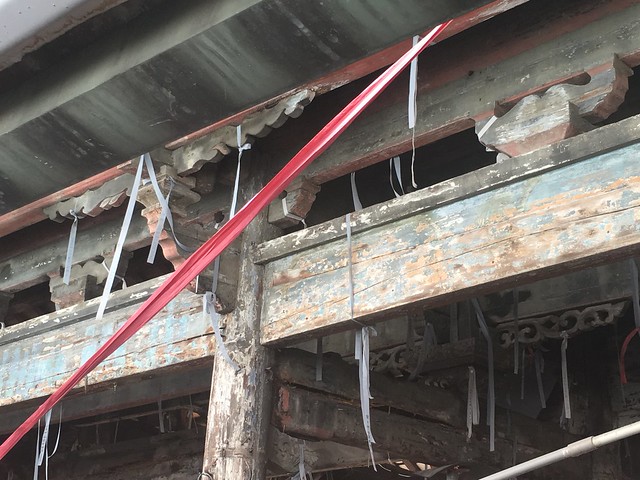 |
| A zoomed-in look at the Examination Hall |
As - again - there was no public transport between these two stops, we were downright flushed from walking given the heat of the day. We'd also stopped in a Filipino supermarket we'd passed to load up on things that can be hard to find in regular shops - beef bouillon, adobo seasoning, that sort of thing.
Fortunately, near the examination hall, one can find Taichung's old City Hall, a gorgeous Japanese-era building that is still in use as a government office. You're allowed to take a look as long as you sign in, at least on Sundays (I can't speak for whether that's possible on weekdays, as it seems to hold functioning office space). This sort of building just feels like Taiwan: Chinese on the signage, a Japanese colonial-style building, all bricks, concrete and plaster, colonnades. Balmy tropical heat, palm trees in the courtyard. Peeling paint. A laid-back, chilled-out vibe. A friendly security guard lounging out front, drinking from his glass thermos of Chinese-style tea, who doesn't mind if you walk around unsupervised. Staircases with worn-out red carpeting, the mechanical sound of a big metal fan churning the air. A few families with kids playing in the courtyard because why not?
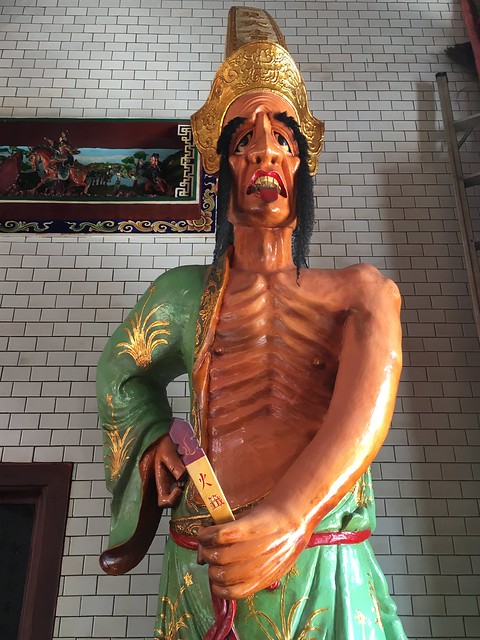 |
| At the City God Temple |
International tourists might not find these things of interest, but as a domestic tourist, to me it's quite heartening. Yup, this is Taiwan. This is my home.
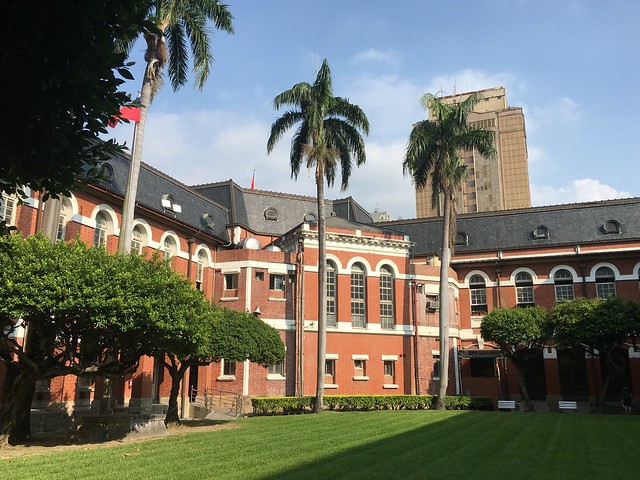 |
| This is so Taiwan. I look at this scene and can only really think of this beautiful country. |
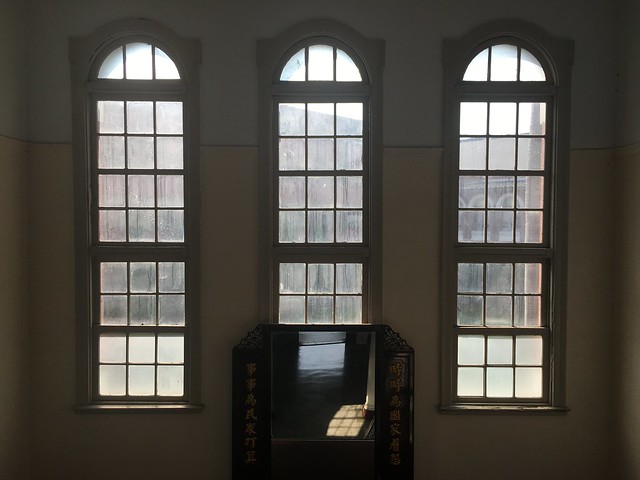 |
| Inside the Old City Hall |
 |
| Cat shaved ice |
Feeling a bit too overheated to do much more, we took a brief walk - basically just across the street - to another old government building. To find it, just look for the other colonial-era structure near the old City Hall. With dinner plans looming, we didn't have a lot of time to walk around the building, but you can find vintage-vibe Cafe 1911 on the ground floor. We had some iced milk tea and a small shaved ice dessert decorated to look like an adorable little cat, and relaxed until it was time to pick up our bags from storage and head to the other side of town.
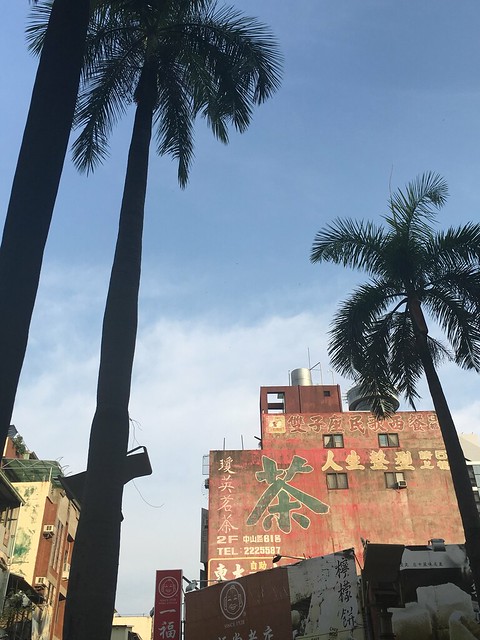 |
| This, too, is just so Taiwan |
It should have been a 30-minute drive, but it took closer to an hour and cost about $400NT. There was no public transit option, and certainly no MRT to avoid the snarled traffic. We were late for the soft opening of Texas Roadhouse Taichung, where we'd been invited to join some other friends. The food was hearty, American and yes, good - I may travel the world but I'll tell you, American mid-range restaurant chains are very good at comfort food and I won't pretend a hipster distaste for them that I don't have - and the atmosphere reminded me of the country of my birth.
Certainly there was no more chicken ass.
From there, we had to taxi to the HSR station as well - again, no convenient public transport that could get us there in a reasonable time frame (I'm not sure there was any transit available at all in that part of town) - for another chunk of cash.
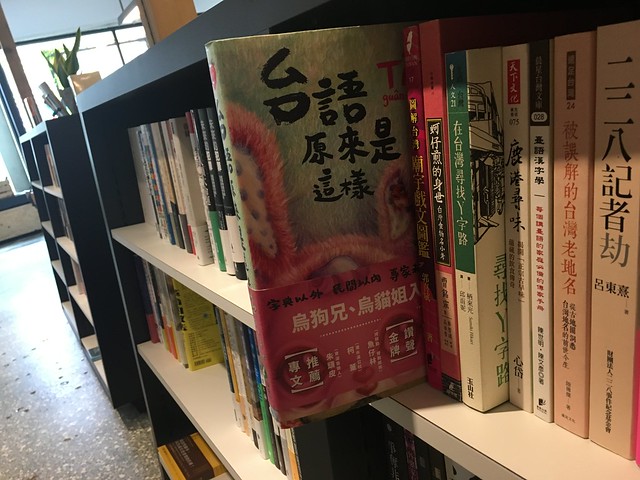 |
| Some of the books available (no real English selection) at Fleet Street |
And that's the story of how I had a very enjoyable weekend in Taichung with friends, and spent more money on taxis than on a hotel, because if you don't drive, there is no reasonable, quick way to get around the city.
That's the only reason I hesitate to recommend it as a weekend for readers who live in Taiwan but don't drive. You can have a lot of fun, especially if you have friends there or like searching for old or vintage things. I could have spent more time there, heading up to Dakeng, wandering Taichung Park, or another evening in the neighborhood around Curry Orgasmo, trying a new restaurant. I would have loved to have taken Brendan to Fengchia Night Market, but it's a bit far out and the last time I went, I spent more on the taxi there and back than I spent in the market itself. Or I would happy wander in any of these areas.
Taichung isn't that pretty on a large scale - cities in Taiwan usually aren't - but you can find lots of pleasant little nooks and crannies, and unexpected things if you walk around, that might surprise and delight you. If you skirt all the construction, that is.
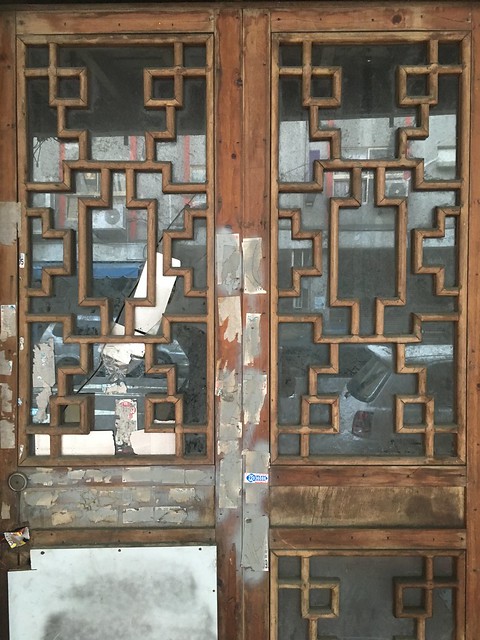 |
| Just a random old thing on the street in Taichung |
But if you don't drive, it will be a more expensive weekend than you might like. Few things are near each other, taxis often need to be called, and while there is a bus network, it's just not that usable or convenient if you don't know your way around already (which I didn't).
By all means, visit. But budget accordingly, become comfortable with city driving (something I will never do), or stick only to activities along the major bus routes. As a city to spend a weekend in, Taichung gets an A- (it would get an A if not for the pollution). As a city I had to navigate without a car, it gets a D at best, and that's only because the desserts at Delys&Sens made me feel generous.
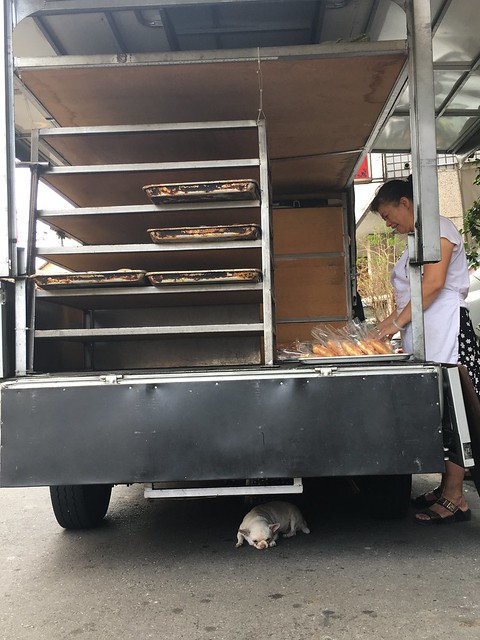 |
| Doughnut-like baked goods vendor on the way to the City God Temple (her products were delicious, and her dog adorably scruffy) |
Monday, October 1, 2018
Two roads diverged over wood
 |
| From Wikimedia |
Since my last post about men behaving badly and the woman-haters who defend them, I've been thinking about Taiwan's specific situation vis-a-vis politics and sexual assault.
Perhaps it is too simplistic to say "America sucks, but in Taiwan, if there is even a whiff of sexual misconduct your political career is finished!" More accurately, one might say that in the US, only in recent decades are people beginning to fully understand what sexual assault means, and are slowly gaining the courage to point fingers at powerful men (the assailants are almost always male).
In Taiwan, however, it is simply less likely that sexual assault will be reported. I did a little back-of-the-envelope number crunching for 2015 (I have statistics for Taiwan 2017, but had trouble finding specific information on sexual assaults in Taiwan for 2016, the last year that data seems to be available in the US. So, 2015 it is.)
US population in 2015: 321 million
Reports of sexual assault in the US in 2015: 431,837 (male and female)
Per capita: .00134
Taiwan population in 2015: 23,485,755
Reports of sexual assault in Taiwan 2015 (gender not specified so I assume both): 10,454
Per capita: .00044
That's a huge difference - considering differences in population, the US still has a higher report rate of sexual assault than Taiwan.
I highly doubt that there is just less sexual assault in Taiwan, and that's why there are so many fewer reports. In the US it's estimated that about 2/3 of sexual assaults are not reported, or 70-some-odd percent. In Taiwan, it is estimated that the number of actual sexual assaults c.f. those reported is seven to ten times higher. We also know that domestic abuse is a massive problem in Taiwan, and dare I conjecture that domestic violence and sexual assault share enough characteristics (they are both about power and control, they both disproportionately affect women, they both generally stem from misogyny or a sense of entitlement over women's bodies) that where there's a lot of one, there is probably a fair amount of the other? I do dare - and low report rates of both likely have some connection to the way the Taiwanese judicial system is likely to treat women who report, not to mention cultural stigma surrounding reporting gender-based violence and the "defamation" lawsuits women who make allegations but don't wish to press charges may face.
Taking that further, it's hard to imagine that Taiwanese politicians somehow commit sexual assault at a lower rate than the general population (a rate that is much higher than statistics would lead one to believe), especially given the relationship between violence - including sexual assault - and power. I suppose once in office, some of them might realize that committing such a crime would ruin their career irreparably, but it would be silly to think that such selfish (because such a realization is not really about respect for women) reflection would extend back to their youth.
Considering that Lien Chan is widely believed to have committed domestic abuse (frankly, I find it more than likely that the allegations are true), and the penchant of Taiwanese politicians - or pretty much all Taiwanese men in positions of power - to visit 酒店 or hostess bars, it just seems unlikely that Taiwan's public figures have clean histories regarding women.
Rather, it seems a lot more obvious to me that sexual assault by Taiwanese public figures before or after they take office go unreported - or are shut down before fingers are publicly pointed at identifiable people - rather than that they don't happen.
What this means is that Taiwan may not, in fact, be much better than the United States in this regard. In the US, women feel increasingly willing to hold powerful men to account, publicly, for their misdeeds. The vast majority of the time, these women are telling the truth - research shows that, to the best of our knowledge, only 2-6% of sexual violence accusations are false. Culture is changing in the US, both in ways that can be felt (certainly, as a child of the 1980s, I can say that this culture shift is real), in ways that can be researched, and in ways we can document. Even looking at the Wikipedia entry for sex scandals of federal elected politicians, there has been an uptick as the years go on - almost certainly because women are more likely to step forward now.
Taiwan doesn't seem to have gone through that transformation yet. It's not that sexual assault is considered acceptable here - it's certainly not - it's that ideas of what constitutes sexual assault here sometimes (not always, but sometimes) feel like they're straight out of the 1980s, and the stigma surrounding reporting seeming more like what my mother and grandmother might have faced, rather than me. I mean, this is a country where raping a domestic employee once doesn't bar you from hiring another one after a period of time.
But, there's an entrenched feeling that those in power still just don't care. In the US, Dr. Blasey Ford's testimony against a screaming, weeping Brett Kavanaugh is considered by experts - and basically every woman who has had something like this happen to her, which is a huge number of us - to be credible, there's a fair chance he'll still make it to the Supreme Court. The same thing happened in 1991 with Anita Hill. We know that the President of the United States is unfaithful to his wife, and there are 22 sexual assault allegations against him as of today (20 as of when this was written - included here as it's a better source). Yet, he gets to be president, and his supporters either defend him, or are willing to believe that that many women are lying. (I, personally, think it's so obvious that Trump is a sexual abuser and possibly a rapist that I find it astounding someone might think otherwise.) Every few years, it's a massive battle to reauthorize the Violence Against Women Act.
So, great, we can speak out now and someone might actually listen, but it still has ruinous effects on the women - hurting careers, exposing them to more trauma and harassment - and hasn't made much of an impact on the political machine, or sexual assault rates in general.
In Taiwan, if you manage to publicly accuse a political figure of sexual assault - overcoming all of the pressure not to do so and knowing you'll likely be torn apart in the gossip rags and forums full of angry young dudes (have you seen PTT? Jesus) - and people actually listen to you, great, his career will be over.
But good luck getting to that point.
Alright then - two roads diverged, but they're really worn about equally the same.
Friday, September 28, 2018
Taiwan has issues with sexism, but we don't put known attempted rapists in office
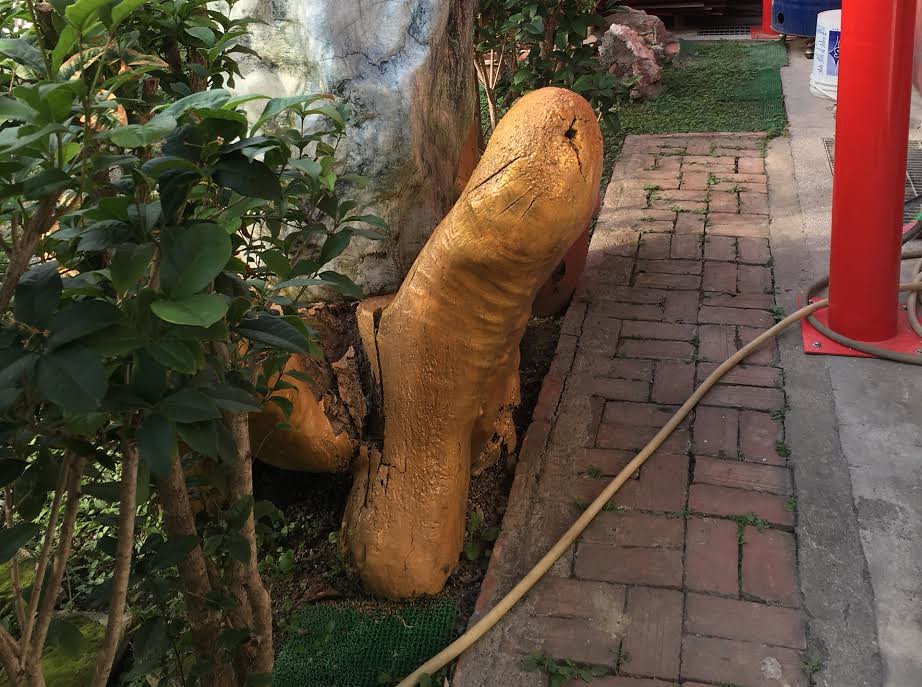 |
| An innocent golden piece of wood from the Grand Matsu Temple in Tainan |
All I can say about the Blasey Ford / Kavanaugh hearings is that at this point, in 2018, if you still support the Republican Party, then you hate women and think sexual assault is okay.
I don't care if you want to identify as a 'conservative'. I don't know what that is supposed to mean anymore, but whatever. Fine. We don't all have to have the exact same values and there is room to disagree or have differing perspectives on quite a lot. I'm talking about specifically supporting these monsters. And I mean it: at this point, doing so would lead me to seriously question your character. I can tolerate disagreement on many issues, but I cannot tolerate woman-hating attempted rape-excusers.
Yes, attempted rape. If you hold a woman down against her will and try to tear off her clothes as you stop her from screaming, you're not horsing around or copping a feel, you are attempting rape.
Of course, I could have said I felt this way after the election, when the country elected a known sexual assailant. Hell, if I had been old enough, I could have said it in 1991. I could have asked then why it was acceptable for these men to be elected or confirmed to office when no decent person would tolerate that sort of behavior - including talk - from their own sons, brothers, husbands or fathers. But I was a kid in 1991, and Trump exerted a hypnotic pull on the dumber half of the country that turned them into something more like cult members than actual rational voters.
Now, however, it is clear. We know what they do and we know what they will accept. We know they are either sex predators, or they think being a sex predator is acceptable (if you are a straight, white male). If you support that or even just accept it, there is no longer any excuse for you.
Contrast this to Taiwan. Taiwan is far from a paradise of equality - I have female students who tell me openly that they want to go abroad because their families treat them unfairly because they are daughters. More than one adult female student has told me that she won't marry because she has no intention of taking on the expected duties of a wife, and hasn't yet met a man who truly understands that. The same goes for women who have decided not to have children. There is a lot of particularly heinous crime against women by men (although the overall crime rate is dropping, including "non-negligent manslaughter" and what the government weirdly calls "forcible" rape), and the media covers it in the most sexist way possible. Domestic violence is still an issue and there's still a pay gap. I have my own stories of sexism at former jobs.
But as far as I know - and please correct me if I'm wrong - Taiwan has never knowingly elected or allowed the confirmation of someone like Kavanaugh, or Clarence Thomas, or Trump - to a position in the government.
Taiwanese politicians may often be horrible people, but if there's even a whiff of sexual predation about you, your political career is finished. In this country, if you so much as touch a boob without consent (which is also not okay, by the way), as far as any sort of public office is concerned, you're done.
That's just about how it should be: as I see it, if someone has something like that in their past, they demonstrate remorse and do attempt to be a better person, an acceptable consequence is that they may never be fit for political office. As a person, however - again, if demonstrate remorse and personal growth are demonstrated - a second chance may be warranted.
Seriously - Taiwan hasn't yet figured out how media should report on crimes against women, how to treat its wives and daughters fairly or how to close its own pay gap. But it has figured out that sexual misconduct of any kind is an immediate disqualification for political office.
Supposedly one of the most "egalitarian", "meritocratic" societies on Earth, where may credit the modern feminist movement with gaining steam, can't even figure that out. They can't wrap their heads around what a geographically small, often (though not always) parochial nation often described as "conservative", "Confucian" and "passive" (though I don't agree fully) has already figured out.
Good job, America, at demonstrating to the world what you actually think of women. Remind me to laugh in the face of the next person who tries to tell me that the US is so much 'better' when it comes to women's equality.
Monday, September 24, 2018
We may have bipartisan support, but it's still hard to vote for friends of Taiwan
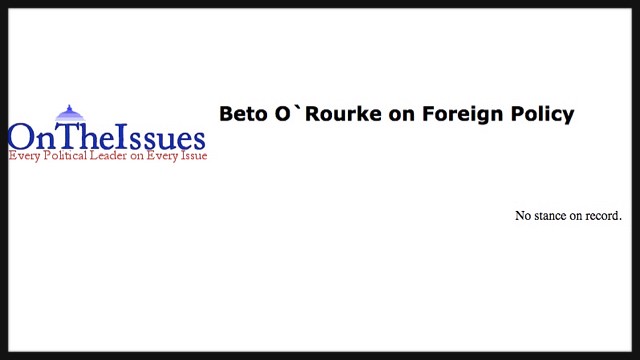
Like any good Snowflake SJW Avocado Toast Millenial*, I'm excited that Beto O'Rourke - a liberal described as "the next Obama" - is actually a realistic challenger to Ted Cruz in Texas. Texas! Where "no democrat has held state-wide office since 1994"! In a midterm election year that is not only seen as a referendum on Trump's two years of terrorizing from his perch in the White House, but also the only realistic chance we as a nation have of curbing him, to see this kind of progressive stand a chance in Texas of all places is huge.
This is especially exciting as he stands to unseat Ted Cruz, who ran for Human President in 2016 and who hates women and the LGBT community which is odd as I'm not sure his species has 'genders' or 'biological sex' in the way we understand them. In any case, pretty much nobody likes him.
So he could be gone! Yay!
...right?
Oh, wait, you support Taiwan and want to vote for representatives in the US government who are friends of Taiwan.
Then, not yay.
I have no idea what Beto O'Rourke thinks about Taiwan, or about foreign policy in general, and it seems neither does anyone else. His own website has no guidance whatsoever as to what, as a senator, his foreign policy would be.
But, as 'the next Obama' I can make some educated guesses. Obama was not a great friend to Taiwan. See here on arms sales (Taiwan advocates didn't seem terribly impressed and neither was I), "reducing tensions on both sides of the strait" (as though the source of the tensions weren't entirely one-sided), his advisors totally missing the point of Taiwan independence, ceding the high ground (and insistence on standing up for what's right) to McCain, and seeming to care more for Beijing's tender baby feelings than actually doing the right thing. Then there's support for the milquetoast, only-because-of-politics status quo ("a high degree of self-determination?" Screw you, buddy. Total self-determination like any other democratic nation or GTFO). Perhaps necessary, but harmful to Taiwan.
Long and short of it? Lots of talk about doing what's right on the American left, but then they turn around and play politics just like everyone else. I don't imagine an Obama-style liberal like O'Rourke will be a great ally of Taiwan.
Who knows? He might surprise me. But I doubt it.
Ted Cruz? He met with Tsai Ing-wen. Ted Cruz (Ted Cruz!) said this:
Another champion of Taiwan and supporter of the travel bill, is Sen. Ted Cruz (R-Tex.), who met with Tsai in Houston on Jan. 8, 2017 despite Beijing’s strong objections.
In an interview, Cruz slammed as “absurd” a December threat by Chinese diplomat Li Kexin during an event at Beijing’s embassy in Washington. Li told colleagues that he had warned U.S. officials against docking American warships in Taiwan.
“The day that a U.S. Navy vessel arrives in Kaohsiung is the day that our People’s Liberation Army unifies Taiwan with military force,” Li said, according to Chinese media reports cited by Reuters.
“The threat from a low-level Chinese diplomat of a military invasion of Taiwan was absurd, unduly provocative and should be met with laughter and derision,” Cruz said.
Cruz also denounced China for “vigorously” lobbying to kill strong ports-of-call language for Taiwan that he wanted included in the 2018 defense authorization bill, Cruz said.
I'd cream my damn pants if Obama said something like that.
I know, I know, a senator can say things a president can't, but remember, Cruz wanted to be
president.
But wait, there's more!
"Texas stands with Taiwan," Ted Cruz also said.
While I'm not sure why Cruz is such a strong Taiwan supporter - general wisdom has it that most pro-Taiwan Republicans support this country because they oppose "Communist China", that is, they're still stuck in Cold War thinking - I'm definitely of the school of Taiwan advocate that feels Taiwan should take the help it can get. I'm not inclined to say we don't want his support because he's awful in just about every other respect.
But, as a liberal pro-Taiwan voter, I'm damn glad I'm not a Texan.
Sure, we have bipartisan support and I am glad of that. I won't pretend this is a war of Dems against Reps for the future of Taiwan or anything like that.
But, what's a girl who supports Taiwan, enjoys bodily autonomy and wants her gay friends to have equal rights to do, when the guy she would vote for is very likely not going to be the Taiwan ally she wants to see in office, and the champion of Taiwan he stands to defeat pretty much hates her on account of her having a vagina?
If the only issue she cared about were Taiwan, the choice would be obvious (and very self-harming, if not masochistic.) But when every other platform of the friend of Taiwan she wants to see in office is so odious that she feels she must vote against him, only to worry that that strong bipartisan support for Taiwan in congress might well waver - maybe just a ripple - by voting out a Taiwan ally and voting in someone who doesn't appear to have a foreign policy at all, let alone any sense of the importance of Taiwan.
All I can say is, if this issue were to ever face me as a voter in the northeast, I would honestly spin myself in circles with anxiety. It quite literally feels like it comes down to "Taiwan, which is what is right", and "everything else that's right".
I want a tried-and-true friend of Taiwan in office, but I also want O'Rourke to win for literally every other reason.
So yeah, bipartisan support or not, it's really difficult to use our votes as Americans to support Taiwan.
*not really a Millenial but let's pretend
Saturday, September 22, 2018
Tricked Into Divorce (no, not me)
A friend sent me this the other day: it's a document translated in Chinese, Japanese, English and several Southeast Asian languages asking foreign spouses at the registration office filling out divorce paperwork if they agree to get a divorce.
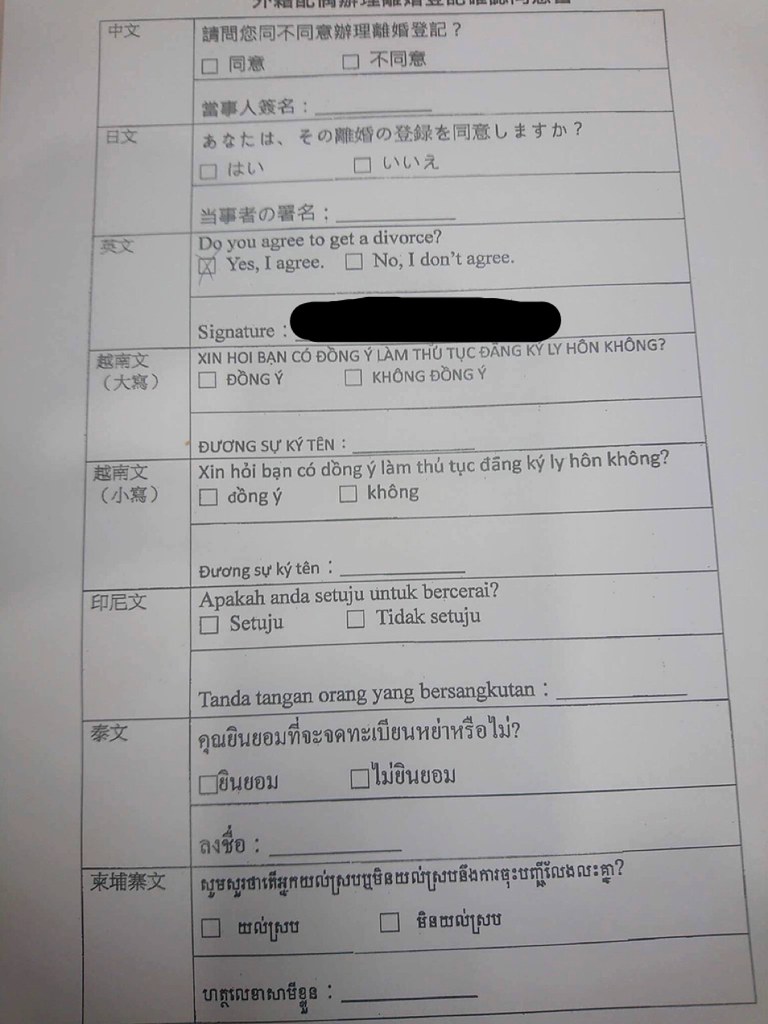
Apparently, the police require this for all foreign divorces in Taiwan now, as it is too common for a Taiwanese spouse (usually male) who wants to divorce (usually a Southeast Asian woman who can't read Chinese) to take her to the local housing registration office saying they have to "fill out some paperwork", perhaps saying it's about some unrelated thing, and then divorcing her without her knowledge.
While it's not so easy in Taiwan for someone to divorce their spouse if that spouse doesn't agree, these 'trick' divorces made it look like the wife agreed - after all, she signed the paperwork without complaint. If both spouses agree, the process of legal divorce takes less than half an hour (in terms of splitting assets, I have no idea).
Once the divorce is final, the foreign spouse - again, usually a woman who doesn't speak or read Chinese - has 48 hours to leave the country. No time to demand access to assets or other support. Possibly no time to even go to the bank, if she has a bank account in her own name, which she likely doesn't. No realistic way to take any children with her. She's out, she gets nothing, quite possibly returning to a life of miserable poverty, and he gets a clean break and to keep everything. It is extremely difficult if not impossible to fight for a fair division of assets once out of the country, and as far as I know there is no legal way to apply to stay on such short notice (though I'm not sure about that, and if there were, it's not clear that someone who can't read Chinese and might not even have her own transport would be able to access it.)
This is absolutely evil, that goes without saying. It is wrong. It cannot be tolerated.
The good news is that the Taiwanese government got its act together (that happens sometimes!) and put together this form, which is now standard with foreign divorces. Unless the spouse is illiterate - in which case I suppose an interpreter would be necessary and locating one on short notice would pose other problems - it clarifies for the soon-to-be-erstwhile foreign spouse what is happening.
If in fact she is being tricked, she can then refuse to sign the divorce papers, which buys her time and therefore better access to legal services to fight for assets and custody. She's not left penniless on a plane back to her country of birth without so much as the chance to give family there (if she has any) advance notification to expect her.
This doesn't solve every problem with the rules surrounding foreign spouses: if you knowingly divorce or your spouse dies and you were unable to obtain an APRC (or just had not done so) - keeping in mind that the men who marry Southeast Asian women may not meet the required income threshold for her to get an APRC, if she even knows that's an option - you also have few options for staying in Taiwan, and that's not right. However, it deals with a massive issue many of us had no idea existed. It materially improves an issue facing foreigners - especially foreign women - in Taiwan.
One thing that helps with this is that the document itself is very simple - one easy-to-understand question and very simple choices of answer (so if there is some ability to read but overall literacy level is not high, it should still be comprehensible), which shows sensitivity to the situation of these women. It might seem to us that any foreigner who comes to Taiwan would be literate in their own language, but when it comes to women brokered through the marriage industry (and it is very much an industry) here, that's not guaranteed to be true.
I don't often say this, but good job, Taiwanese government. You did the right thing.

Apparently, the police require this for all foreign divorces in Taiwan now, as it is too common for a Taiwanese spouse (usually male) who wants to divorce (usually a Southeast Asian woman who can't read Chinese) to take her to the local housing registration office saying they have to "fill out some paperwork", perhaps saying it's about some unrelated thing, and then divorcing her without her knowledge.
While it's not so easy in Taiwan for someone to divorce their spouse if that spouse doesn't agree, these 'trick' divorces made it look like the wife agreed - after all, she signed the paperwork without complaint. If both spouses agree, the process of legal divorce takes less than half an hour (in terms of splitting assets, I have no idea).
Once the divorce is final, the foreign spouse - again, usually a woman who doesn't speak or read Chinese - has 48 hours to leave the country. No time to demand access to assets or other support. Possibly no time to even go to the bank, if she has a bank account in her own name, which she likely doesn't. No realistic way to take any children with her. She's out, she gets nothing, quite possibly returning to a life of miserable poverty, and he gets a clean break and to keep everything. It is extremely difficult if not impossible to fight for a fair division of assets once out of the country, and as far as I know there is no legal way to apply to stay on such short notice (though I'm not sure about that, and if there were, it's not clear that someone who can't read Chinese and might not even have her own transport would be able to access it.)
This is absolutely evil, that goes without saying. It is wrong. It cannot be tolerated.
The good news is that the Taiwanese government got its act together (that happens sometimes!) and put together this form, which is now standard with foreign divorces. Unless the spouse is illiterate - in which case I suppose an interpreter would be necessary and locating one on short notice would pose other problems - it clarifies for the soon-to-be-erstwhile foreign spouse what is happening.
If in fact she is being tricked, she can then refuse to sign the divorce papers, which buys her time and therefore better access to legal services to fight for assets and custody. She's not left penniless on a plane back to her country of birth without so much as the chance to give family there (if she has any) advance notification to expect her.
This doesn't solve every problem with the rules surrounding foreign spouses: if you knowingly divorce or your spouse dies and you were unable to obtain an APRC (or just had not done so) - keeping in mind that the men who marry Southeast Asian women may not meet the required income threshold for her to get an APRC, if she even knows that's an option - you also have few options for staying in Taiwan, and that's not right. However, it deals with a massive issue many of us had no idea existed. It materially improves an issue facing foreigners - especially foreign women - in Taiwan.
One thing that helps with this is that the document itself is very simple - one easy-to-understand question and very simple choices of answer (so if there is some ability to read but overall literacy level is not high, it should still be comprehensible), which shows sensitivity to the situation of these women. It might seem to us that any foreigner who comes to Taiwan would be literate in their own language, but when it comes to women brokered through the marriage industry (and it is very much an industry) here, that's not guaranteed to be true.
I don't often say this, but good job, Taiwanese government. You did the right thing.
Friday, September 21, 2018
Yes, Ko is using Xi's language on "one family"
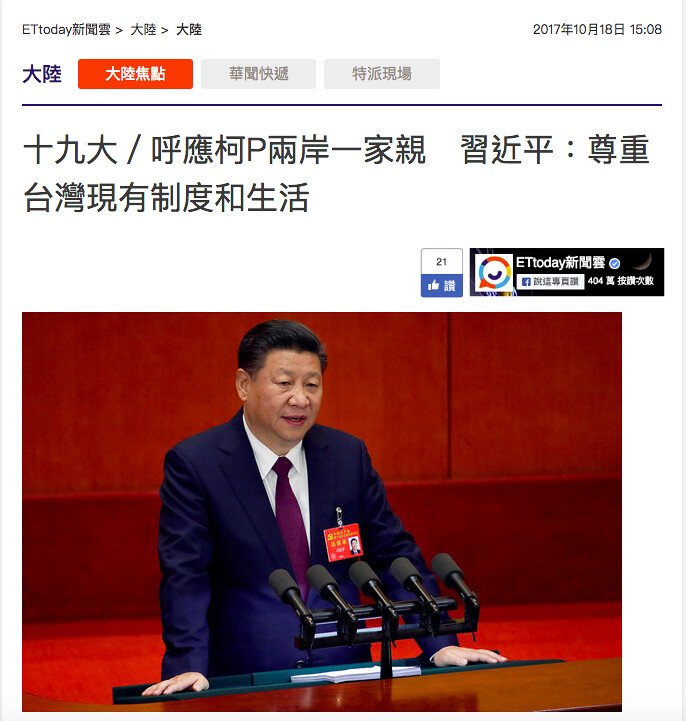 |
| from ETToday |
A piece by former Sunflower leader Lin Fei-fan came out today, warning of Ko's embrace of Xi Jinping's and China's oft-repeated phrase, "the two sides of the Strait are one family", essentially calling Ko's seeming doublespeak on China a strategy out of the Ma Ying-jeou playbook: insisting he's not pro-unification and then acting the opposite.
I'm already anticipating the criticism that'll flow in over such a prominent figure in Taiwanese Third Force politics essentially taking a shot at Ko as the Taipei mayoral election nears and no better pro-Taiwan candidates are running (or arguably, none who could actually win Taipei exist).
One thing in particular I expect to hear, which I'd like to dismantle right now, is the idea that Ko's and Xi's exact wording don't match: that Xi uses "兩岸一家人" (a translation of "one family" that implies a single household or very immediate relatives) and Ko uses "兩岸一家親" which implies a more distant familial relation, like cousins: the idea being that you can share ancestors or be related, but not be under the same household.
However, CRNTT/China Review News/台灣中評, essentially Chinese state-sponsored media in Taiwan and Hong Kong, published a lengthy article on the 19th Party Congress in 2017, in which the latter phrase - the one used by Ko - is explicitly quoted as being used by Xi:
“兩岸一家親”是習近平總書記積極宣導的兩岸關係和平發展新理念,這一新理念的內涵極為豐富。“兩岸一家親”的基礎是兩岸同屬一個民族和國家。“兩岸一家親”的對台政策意涵是用“一家人”的思維和邏輯,“將心比心”更加彈性地處理台灣問題、兩岸分歧和對台讓利。“兩岸一家親”理念要求兩岸同胞彼此信賴,彼此扶持,不斷擴大和密切兩岸交流交往,在融合發展中撫平歷史的傷痕,共同推進中華民族偉大復興的歷史進程。
My rough translation: "The two sides of the strait are one family" is a new concept for the peaceful development of cross-strait relations actively promoted by General Secretary Xi Jinping. This new concept is extremely rich in content. The basis of the phrase "two sides of the strait are one family" is that both sides of the strait belong to one nation. This policy towards Taiwan is to use "family" rhetoric and logic to "reconcile hearts" and deal more flexibly with the Taiwan issue, cross-strait differences, and benefit Taiwan. The "cross-strait family" concept requires compatriots on both sides of the strait to trust each other, support each other, continuously expand cross-strait exchanges, smooth the scars of history in the development of integration, and jointly advance the historic process of the great rejuvenation of the Chinese nation.
Barf.
Anyway, that's what Chinese media in Taiwan is saying. It's useful to get a sense of what the Chinese government thinks, and they are explicitly using the exact same phrase as Ko: not 一家人, but 一家親. Here's another source from ETToday and another from China Times (pan-blue/pro-China media in Taiwan) which contains extensive quotes from Xi. Here's an English translation of Xi's words in 2017. You have to dig, as this wasn't one of the top points of his address, but it's there.
Basically, it seems as though Xi used the old phrasing (一家人) up through about 2013, then switched to the newer one echoed by Ko after that (一家親), while occasionally switching back to the more 'immediate family' (一家人) translation. However, both retain the same translation in English.
I am sure that China does this sort of thing intentionally - taking words that have subtle, hard to parse translations in other languages and twisting them to suit their own ends. Because it's hard to explain these things in English, those who don't know Mandarin buy too easily into CCP-approved ways of thinking about these concepts. Another key example is the way they allow confusion to blossom over the concept of 華人 (Chinese, as in, something from Chinese culture) and 中國人 (from the nation called 'China'): essentially trying to control the debate about what it means to be 'Chinese' by equating it linguistically with anything 'Chinese' being 'a part of China'. Both words, however, translate as 'Chinese' and it's difficult to explain the difference unless you learn the language. It's also difficult for people who don't want to be lumped in under the CCP's idea of what it means to be 'Chinese' to use these words.
"一家親" in its "extended family (not necessarily of one household)" context might have been embraced by many Taiwanese, just as having Chinese cultural heritage (華人) might have been. Now, you can't say those things - you can't express an opinion that you are proud of your Chinese ancestry but don't want to be a part of China - without sounding like a unificationist. That suits some people very well indeed.
Note, in fact, that these points on the Chinese renderings of the phrase "two sides of the strait are one family" are not included in Lin's article: there's just too much you'd have to say to make it clear, and you'd lose readers' interest. It takes up valuable digital real estate - but the fact that it is so hard to discuss in other languages is exactly the point.
Some might ask whether Ko really means to echo Xi and China in his choice of words. I don't know - he's the kind of person who would stumble into this sort of thing unintentionally, having a tendency to...um, not think too much about how he comes across when he talks. He tends to stumble around answers to questions he really should see coming and have rehearsed, polished answers to, but apparently doesn't - not that I generally find Taiwanese politics very polished, mind you.
There's also the terrifying fact that Ko's milquetoast KMT opponent Ting Shou-chung uses the old, even more pro-unification "兩岸一家人" - a sign that Ting, not Ko, is the one in China's pocket? That both are useful idiots, blathering pro-China rhetoric that may sound different to Taiwanese voters but is seen in exactly the same way as China - and that this is intentional on China's part? That Ting is using the phrase in a bid to get the KMT back into the CCP's good graces - they miss their Daddy it seems - but the CCP has decided Ko is a better bet? I don't know.
But Lin puts forward a convincing case that we should at least keep our eye on Ko, and hold him accountable for his words: that CCTV seems to endorse him, and that China certainly is looking to co-opt Third Force and third-party politicians in Taiwan as it sees its inability to push its agenda forward through the KMT, and that his city-level exchanges with Shanghai are problematic. While he doesn't say so explicitly, the CCP's use of specific terminology is very deliberate. These exact phrases - like 兩岸一家人/一家親, or 中華民族偉大復興的歷史進程 ("the great rejuvenation of the Chinese nation") - are significant to them and are generally deployed using exactly the same language each time. They are signals, to some extent dog whistles to those they've co-opted. If Xi has changed his wording, Ko is using it too (and defending that use), the phrase seems to have been given prominence above the language of the so-called "1992 Consensus, and CCTV is happy about all of this, it could very well mean something.
This isn't to say that I think Ko is a unificationist. He strikes me as more of a too-smart-for-his-own-good catspaw or useful idiot. It wouldn't be the first time a seeming pan-green loyalist was manipulated into doing the CCP's bidding, but I don't know what motivates Ko. All I can do is point out that, when it comes down to the very specific terminology put out by the CCP, Ko's words do in fact match up.
I certainly don't think Taiwanese voters will embrace this "one family" doctrine either: when it comes to actual sentiments of most Taiwanese people, Ko's words are not as divisive as some may believe. Just because he's selling potentially problematic ideas doesn't mean the electorate is buying them.
Some will probably say Lin is trying to tank Ko's re-election. If you read between the lines of what Lin is saying, however, it's not that we should not elect Ko. I would bet CA$H money that he fully expects Ko to win, and that he's fully aware that Yao's a joke who doesn't stand a chance and Ting is far worse a choice than Ko. Ting's clearly anti-independence stance is a huge problem, and Yao's off partying like it's 1999, naming Chen Shui-bian (yes, that Chen Shui-bian) his "supreme advisor". LOL.
I'd bet a full case of wine that Lin's goal is to get the world to look more closely at Ko and hold him to account for his words, but not necessarily to refuse to vote for him. He's someone who pokes holes in establishment narratives and criticizes where criticism is due, regardless of the consequences. That's often (though perhaps not always) a good thing.
I am sure he doesn't believe that Taiwanese voters will suddenly go pro-China either: several times in the piece it points out that the KMT is not likely to regain its lost popularity, and that Ko's words on China do not echo the sentiments of the Taiwanese people. His concern is that the Taiwanese people are deliberately ignoring his words out of convenience, for lack of a better candidate, and that's a dangerous path to follow (see: Ma Ying-jeou).
I'm not sure this is the best way to make the case for Taiwan in English in international media, as it's really something for Taiwanese voters to think about and Taiwan gets limited screen time on any media outlet. The rest of the world is confused enough by China's consistently winning the rhetoric war on the China-Taiwan debate (though less so these days), and needs to hear a clear, clarion-bright call bringing the case for Taiwan: not muddy, difficult, unclear domestic political situations that Taiwan is trying to hash out itself. I'd like to see more 'clear cases for Taiwan' and less 'domestic Taiwanese politics' for global readers.
But that doesn't mean Lin is wrong.
And every time the 1992 Consensus is called out for the pro-China garbage it is in English-language media, the better. I am only sad that the word "fabrication" was not used, because that's what it is. More of that, please.
Labels:
ccp,
china,
chinese_language,
dpp,
elections,
kmt,
ko_wen_je,
ma_yingjiu,
mayor_ko,
pasuya_yao,
taipei,
taipei_city,
taiwan_is_not_china,
taiwanese_identity,
ting_shou_jung
Subscribe to:
Posts (Atom)

